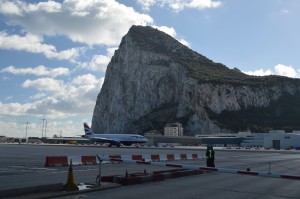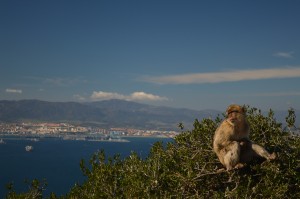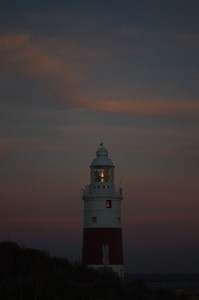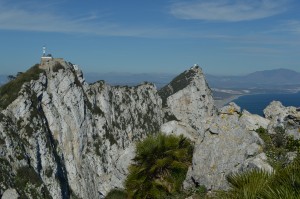The last day of my elective has come around all too quickly. By way of Heathrow, Singapore and Christchurch, in 36 hours I will be back in Invercargill ready to start the final nine months of my medical degree. I’m not usually an anxious flyer, but I recently watched a documentary on how Gibraltar is the fifth “most extreme” airport in the world, largely due to the wind conditions and the four-lane road crossing the runway. To my relief, the wind has restricted itself to a gentle breeze, which amidst blue skies and puffy clouds provides the perfect conclusion to my time in Gibraltar.
Over the last two weeks I have been doing General Surgery in St Bernard’s Hospital. The General Surgery Department here is run by four consultant surgeons, two of whom were previously professors at large European hospitals. In stark contrast to archetypal General Surgeons (famous for their prickly personalities), the surgeons here have all been extremely nice and have gone to great lengths to provide teaching for me.General Surgery is a peculiar speciality, in that the job description is dependent on the size of the hospital and the other surgical specialists there. In large hospitals such as Christchurch, where I did General Surgery in 2012, the surgeons are subspecialised meaning I saw little more than breast cancer operations during my eight weeks on that rotation.
In smaller hospitals, such as St Bernard’s and also the RMIP hospitals in New Zealand, the workload involves much more variety. In the absence of an Urologist, operations on the kidney and prostate in Gibraltar are done by General Surgeons, who also operate on skin lesions as there is no Plastic Surgeon. For me this has meant exposure to many different diseases and operations.I have seen melanomas, tumours excised from the colon, prostate operations and even taxpayer-funded liposuction! The variety in clinical content I find to be more stimulating and provides better learning opportunities, which I think it is one of the major benefits of working in a smaller hospital.
One of the more surprising things about working in Gibraltar is the large amount of rare, serious pathology, given a population of only 30,000. During my two weeks of General Surgery, I have seen many things that I have never seen in over two years of being in a hospital.In the last week alone I have seen a woman with a rare case of cancer in the small intestine, a man whose high cholesterol caused his pancreas to digest itself and a different man whose excess drinking had injured his liver, causing him to vomit blood. While I appreciate that these conditions sound stomach-churning (and even after two years of clinical medicine I still find it off-putting), they are incredibly important conditions for junior doctors to recognise and witnessing their treatment puts me in good stead should I ever have any patients who present in a similar fashion.
Looking back over the blogs that I have written for the Pat Farry Trust, I’ve been struck by how many times I’ve used the word “fortunate”. Unfortunately, it is the only word that I can think of that adequately describes many experiences of the last three months.
I was fortunate to come away with just a cut after injuring myself in India, before going on to have a great time in Lady Willingdon Hospital. I was fortunate to have the amount of one-on-one patient contact that I had in Gibraltar A&E, to have been given the opportunity to do antenatal ultrasounds in Obstetrics and to have seen such a varied array of conditions while doing General Surgery. I am both fortunate and grateful to have received a travelling scholarship from the Pat Farry Trust, which made all of this possible.With any luck, this run of good fortune will last long enough to see me arrive safely back in New Zealand.




No comments yet.
Leave a comment